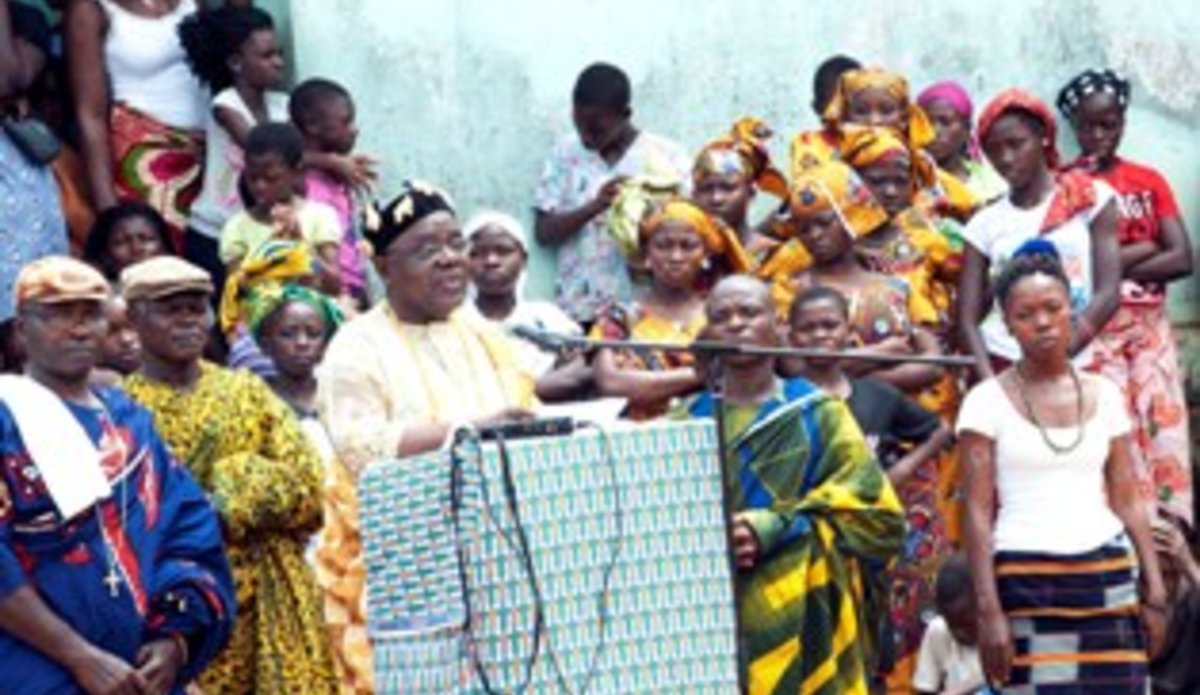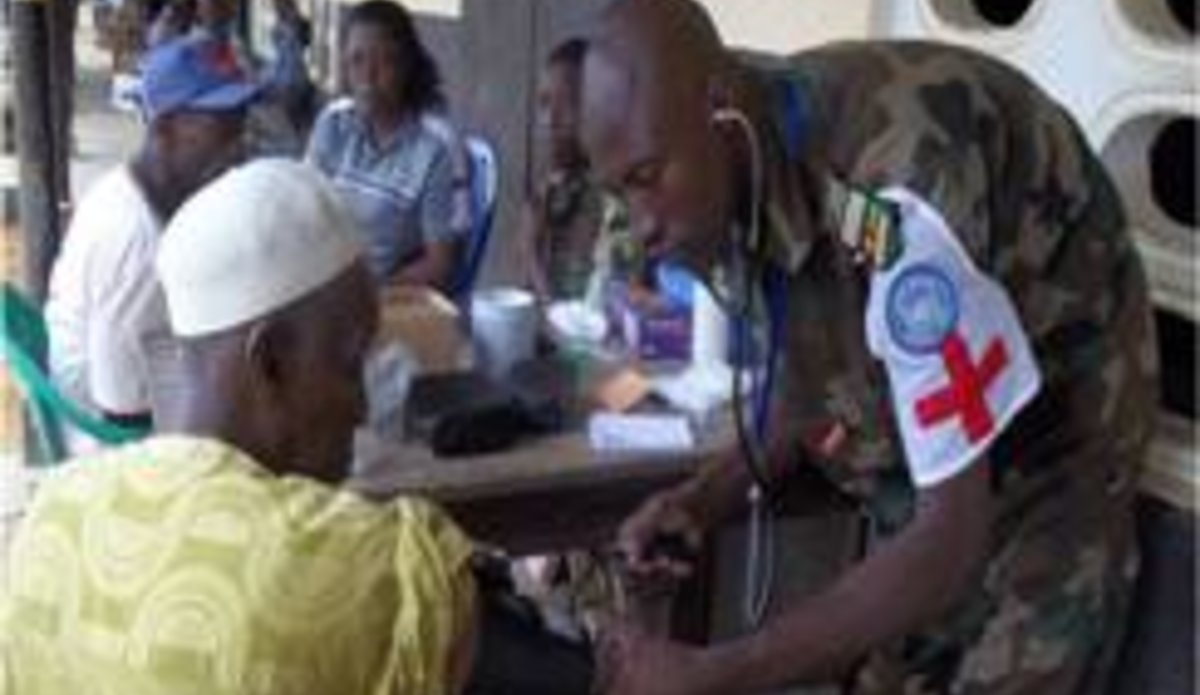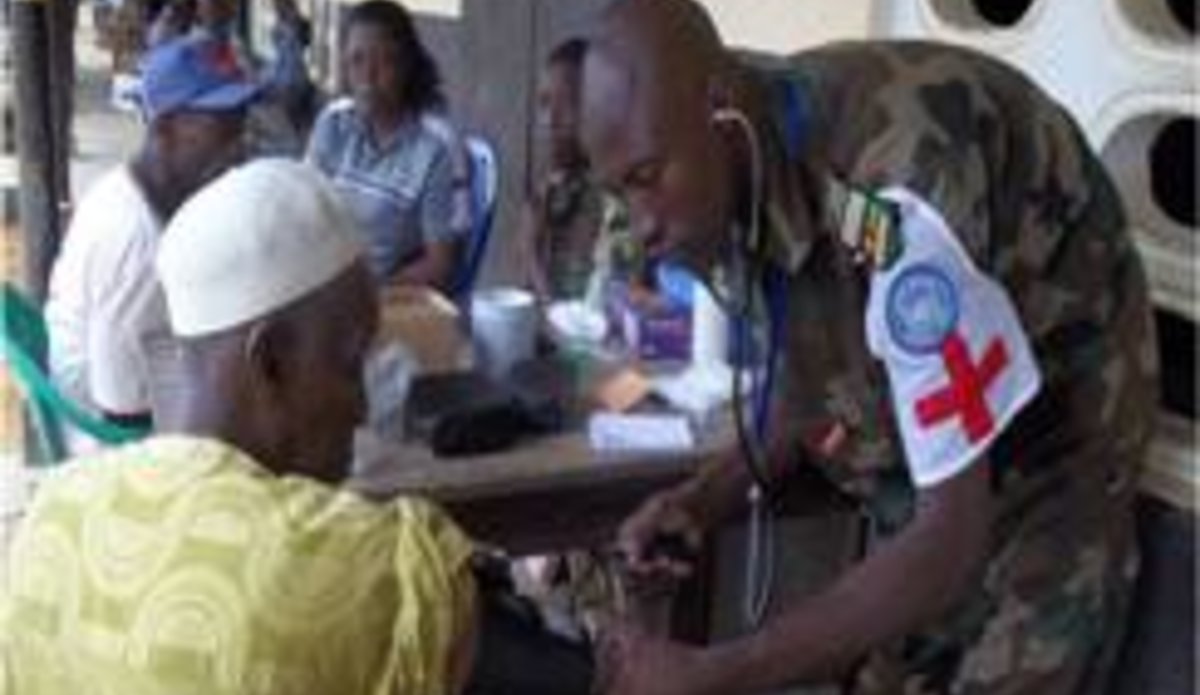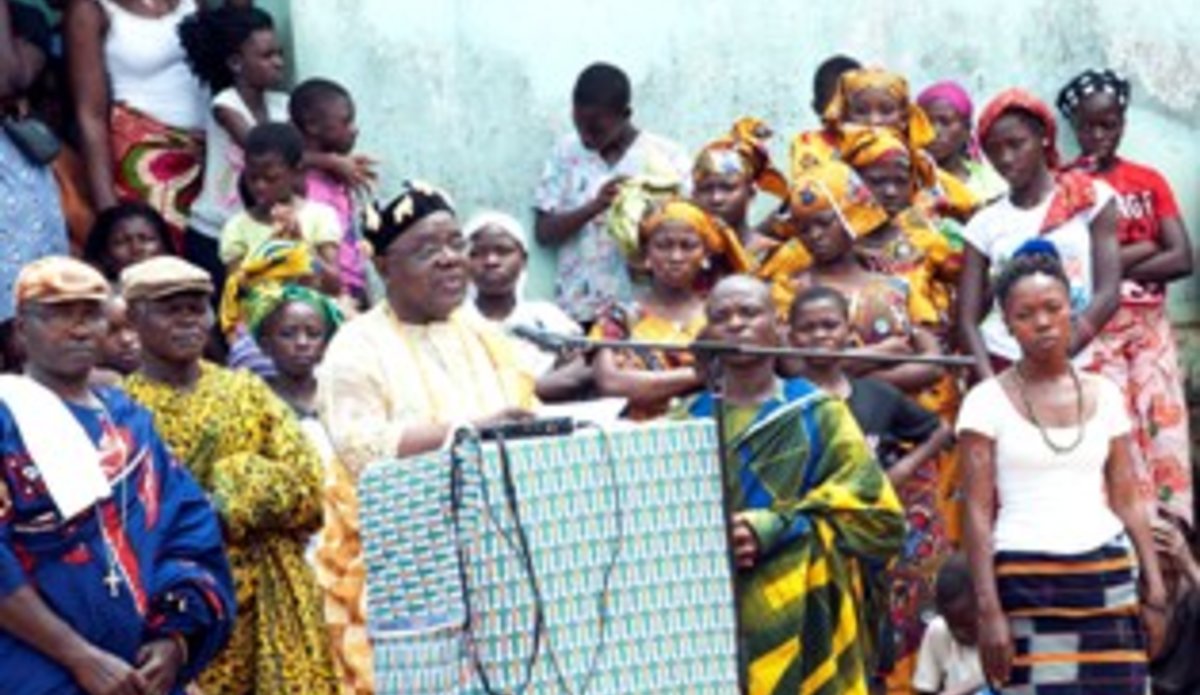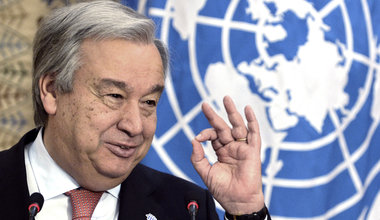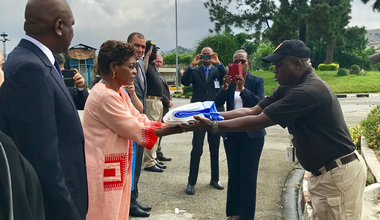UNOCI sensitises the population in Brofodoumé on peace and social cohesion
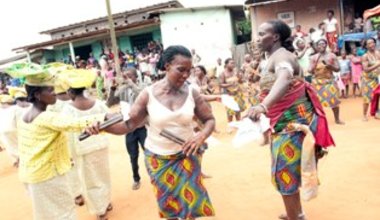
The people in the sous-préfecture of Brofodoumé, in the district of Abidjan, have made a commitment to work to strengthen social cohesion, reconciliation and development hand in hand with the United Nations Operation in Côte d'Ivoire (UNOCI). This commitment was made on Wednesday, 11 September 2013 during a meeting organised as part of UNOCI Tour, the Mission's sensitisation activity aimed at local communities.
Led by their deputy prefect, Sylvie Dan Gnamké, and village chief, Bernard Mobio, a massive turnout of residents of Brofodoumé and 11 neighbouring villages to listen to UNOCI's message and that of its different sections on the need for each one of them to become actors in the consolidation of peace, development and strengthening social cohesion.
In her address during the ceremony, the head of the UNOCI delegation, also a representative of the Public Information Office of the Mission encouraged the population "{to reflect constructively in order to embrace the democractic values which were founded on peace, tolerance and social cohesion, all of which is favourable to development}".

The chief of the UN delegation stressed the importance of the contribution of the population to process and reaffirmed that UNOCI, in accordance with its mandate, will continue to carry out sensitisation activities with the differents sections of society in order to establish the basis of a society whose actions go hand in hand with peace.
The deputy prefect of Brofodoumé, Sylvie Dan Gnamké, thanked UNOCI for having chosen to visit her area, adding that all the actions carried out by the UN Mission was very much appreciated by the population. The deputy prefect also made a plea to the Government for potable water to be made available in Brofodoume, adding that despite its close proximity to the economic capital Abidjan, it had not had potable water for the past three years. Mrs Gnamké appealed to the authorities to remedy the situation. "{Our joy will be complete if we could have access to potable water. If it is true that water is the source of life, we should also know that without it could be a source of death,}" she said.
Returning to the meeting with UNOCI, the deputy prefect stressed the importance that the people and the local authorities accorded to the discussions we have had with the UN Mission on reconciliation, especially as a town which has welcomed a cosmopolitan population. "{We have to accept one another with all our differences}," she said, welcoming the fact that UNOCI's initiative has consolidated the efforts to strengthen social cohesion which had already been undertaken in the locality.
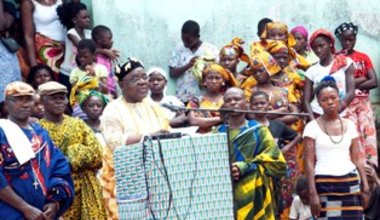
The village chief, Bernard Mobio, who also thanked UNOCI for coming to Brofodoume, extended an open invitation to the Special Representative of the United Nations Secretary-General for Côte d'Ivoire to visit the region. "{The discussions we had today showed that the people of Brofodoumé are on the same wavelength as UNOCI}," he added.
The discussions with the different UNOCI sections did not only focus on the promotion of social cohesion and reconciliation but also on the main priorities of the UN Mission, such as Security Sector Reform (SSR), Disarmament, Demobilisation and Reintegration (DDR) of ex-combatants and the protection of civilians. Special emphasis was put on the responsibilities of opinion leaders with regard to human rights, reconciliation and child protection.

The UNOCI delegation was accompanied by representatives of UNICEF who donated school kits to 30 children as part of their stationery supplies for the new school year.
It should be noted that UNOCI also organised free medical consultations as part of its activities in Brofodoumé. Some 580 people were treated by the medical of the Beninese and Togolese battalions of UNOCI Force. The consultations were much appreciated by the population due to the inadequate medical facilities in their town.
 UN
UN United Nations Peacekeeping
United Nations Peacekeeping


